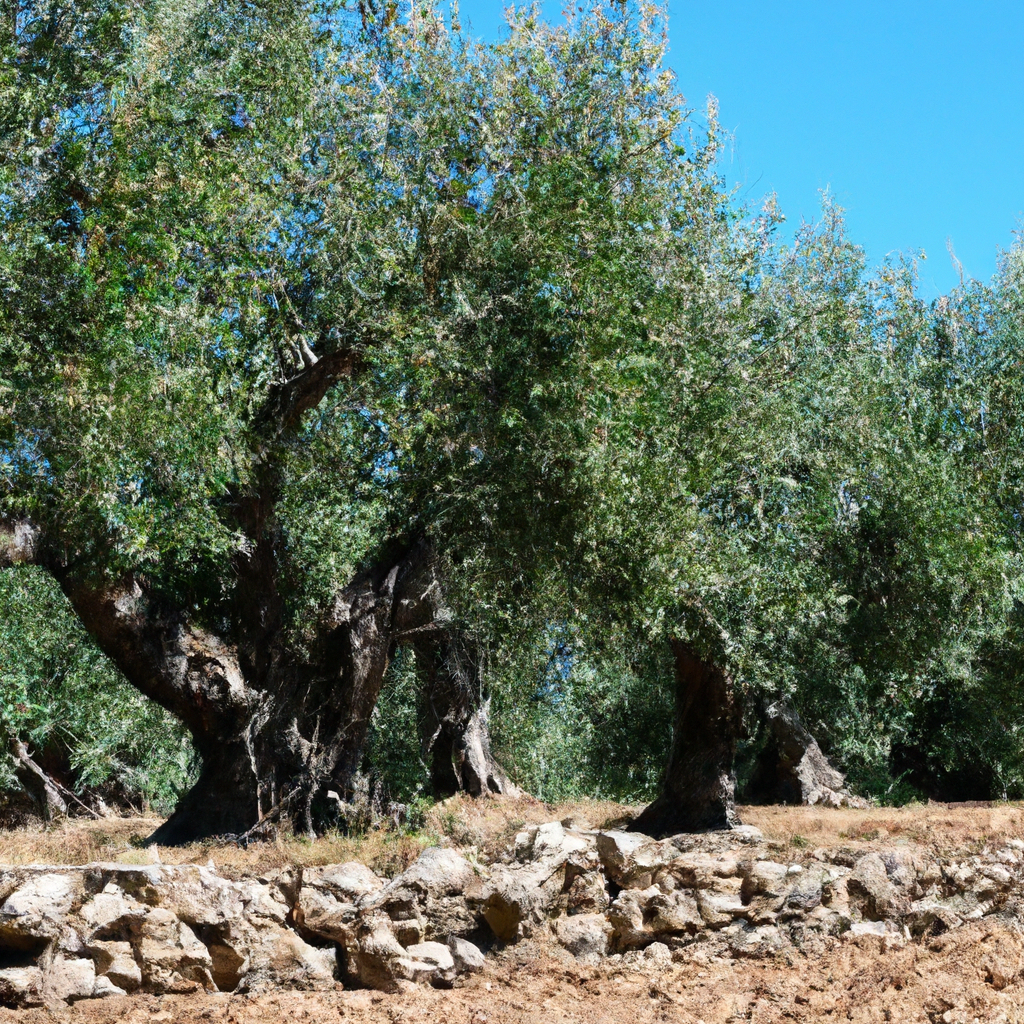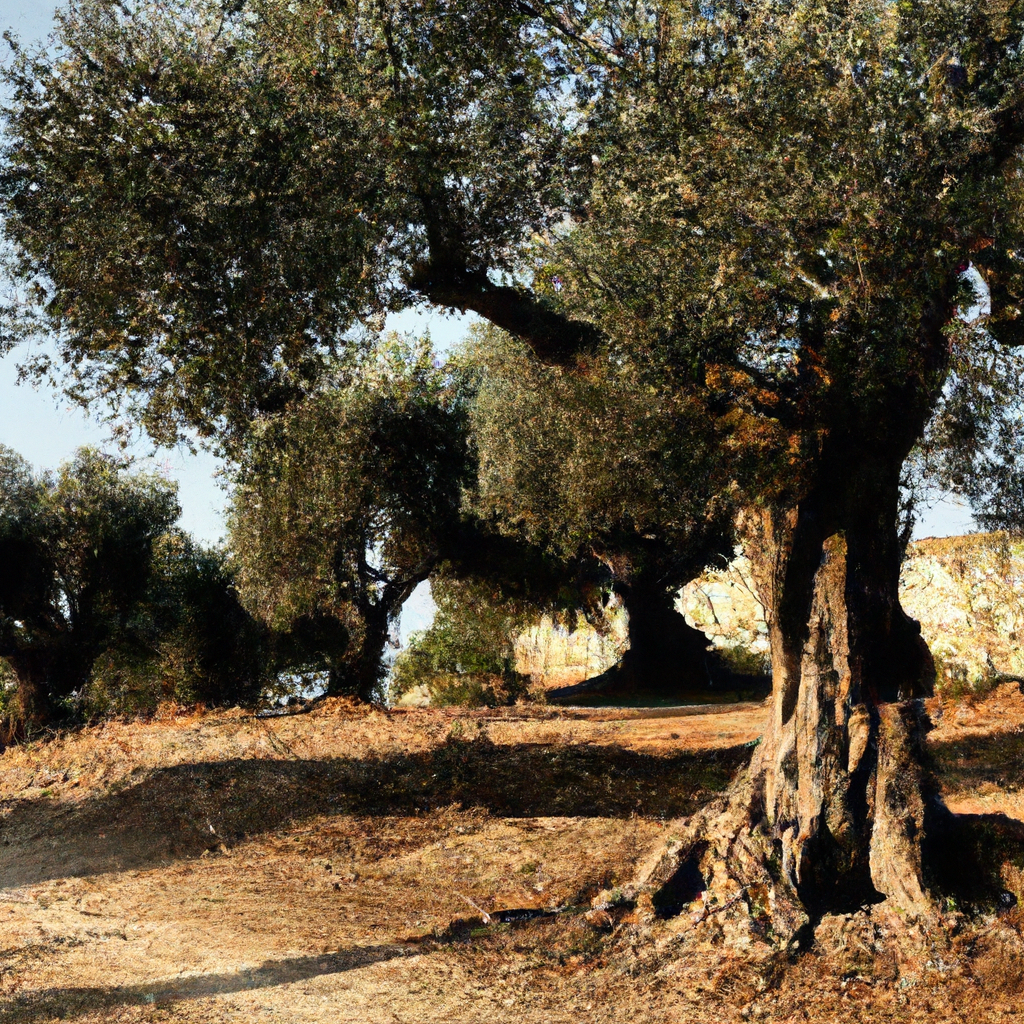Imagine yourself walking amidst the lush greenery of the Olive Groves of Crete, the largest Greek island. As you soak in the breathtaking scenery and the soft Mediterranean breeze gently caresses your face, you can’t help but feel intrigued by the rich cultural tapestry that lies within these ancient trees. This article takes you on a captivating journey into the heart of Greek island culture, as you discover the fascinating history, traditions, and culinary delights that are intricately woven into the fabric of the Olive Groves of Crete.
The History of Olive Groves in Crete
Ancient Origins
The history of olive groves in Crete dates back thousands of years. The olive tree, Olea europaea, has been cultivated on the island since ancient times. Crete, with its ideal Mediterranean climate, fertile soil, and abundant sunshine, provided the perfect conditions for olives to thrive.
Importance in Cretan Culture
Olive groves have played a significant role in Cretan culture throughout history. The olive tree has been revered as a symbol of peace, fertility, and wisdom. It is often referred to as the “tree of life” due to its long lifespan and numerous uses. Olive oil, derived from the fruits of the tree, has been a staple in Cretan cuisine and a valuable commodity for trade.
Traditions and Myths
In Cretan mythology, the olive tree is associated with various legends and deities. According to Greek mythology, the goddess Athena bestowed the first olive tree upon the city of Athens, earning its eternal favor and protection. In ancient times, olives were also considered a sacred gift from the gods and were used in religious ceremonies and rituals.
The Olive Tree – A Symbol of Life and Prosperity
Significance in Greek Mythology
The olive tree holds great significance in Greek mythology. In the myth of Pandora’s box, the olive branch symbolizes peace and restoration. It is said that after all the evils escaped from the box, only hope remained, represented by an olive branch. This symbolizes the olive tree’s association with new beginnings and the potential for growth.
Sacred Olive Trees
Olive trees were often considered sacred in ancient Greece and Crete. Some olive groves were dedicated to specific gods and served as sacred sanctuaries. These trees were protected and deemed inviolable, holding great religious and cultural importance. The sacred olive groves were places of worship and pilgrimage, attracting devotees from all over.
Symbolism in Everyday Life
Beyond mythology, the olive tree and its products hold a deep symbolic meaning in everyday life. Olive oil, in particular, symbolizes peace, purity, and prosperity. It is often used in religious ceremonies, such as baptisms and weddings, as well as to anoint athletes and dignitaries. The olive branch is also an internationally recognized symbol of peace, representing harmony and reconciliation.
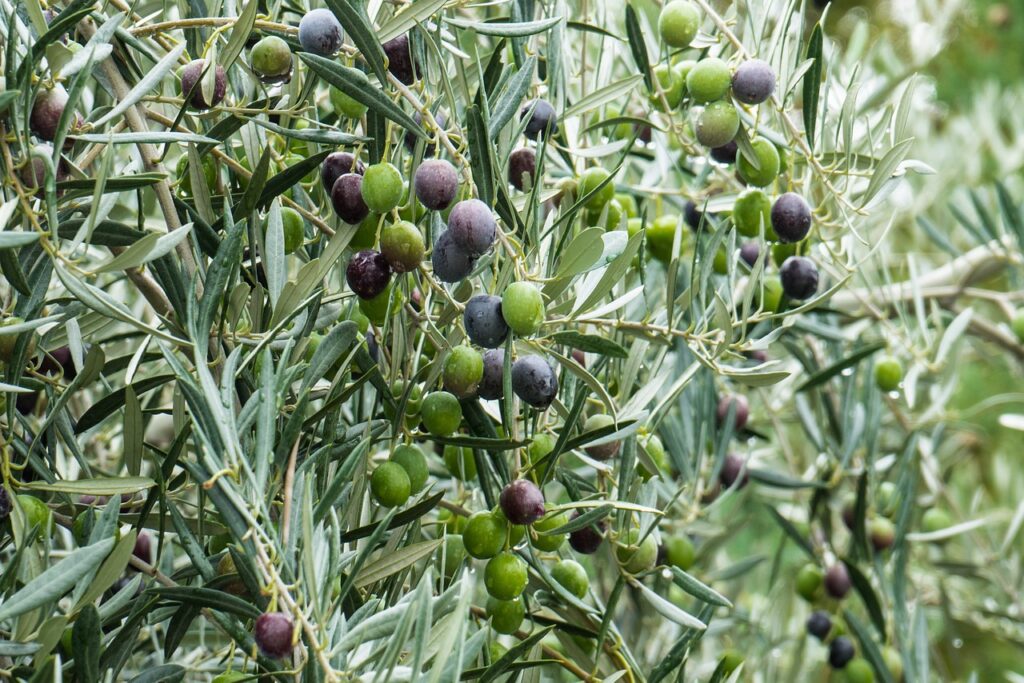
Cultivation and Harvesting of Olives in Crete
Climatic Conditions
Crete’s Mediterranean climate provides the ideal conditions for olive cultivation. The long, hot summers and mild, rainy winters create a perfect balance for the trees to flourish. The mountainous terrain of Crete also contributes to the unique microclimates found throughout the island, resulting in variations in flavor and quality of the olives and olive oil produced.
Traditional vs. Modern Techniques
Cretan olive cultivation has evolved over centuries. Traditional techniques, passed down through generations, involve hand-harvesting the olives and using stone mills to extract the oil. These methods are still practiced by many small-scale farmers. However, modern techniques, such as mechanical harvesting and continuous presses, have also gained popularity, increasing efficiency but sometimes sacrificing the traditional artisanal quality.
Tools and Equipment
The cultivation and harvesting of olives in Crete require specific tools and equipment. The traditional methods often involve the use of wooden ladders, long sticks, and nets to remove the olives from the trees. Large crates or sacks are used to collect the harvested olives. In modern practices, mechanical harvesters and vibrating machines are employed to shake the olives off the trees, making the process faster and more efficient.
The Olive Oil Industry in Crete
Economic Impact
Olive oil production has a significant economic impact on the island of Crete. The industry provides employment opportunities for many locals and contributes to the overall economic growth of the region. Olive oil is one of the main exports of Crete, generating revenue and increasing the island’s international recognition as a producer of high-quality olive oil.
Processing Methods
After the olives are harvested, they undergo a series of processing methods to extract the oil. In traditional olive oil mills, the olives are crushed by stone mills or heavy granite rollers. The resulting paste is then pressed to extract the oil. Modern processing methods involve using centrifuges and hydraulic presses to separate the oil from the pulp and water, ensuring a higher yield of oil and maintaining its quality.
Quality Standards
Cretan olive oil is renowned worldwide for its superior quality. Various quality standards and certifications ensure that the olive oil produced in Crete meets specific criteria. These standards include the acidity level of the oil, the sensory analysis to determine its flavors and aromas, and the adherence to specific farming practices. Following these standards ensures the production of high-quality, authentic Cretan olive oil.
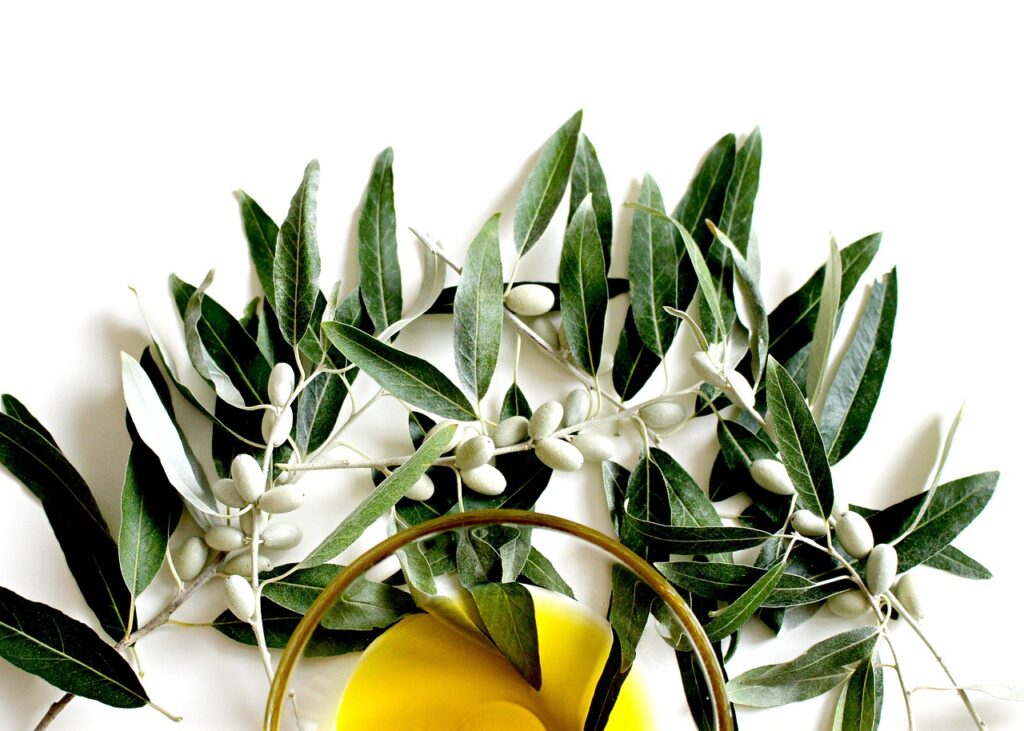
Health Benefits of Cretan Olive Oil
Mediterranean Diet and Longevity
The consumption of olive oil is a fundamental component of the Mediterranean diet, which has been associated with numerous health benefits and longevity. Cretan olive oil, when consumed as part of a balanced diet, has been shown to reduce the risk of heart disease, lower cholesterol levels, and contribute to overall cardiovascular health. The Mediterranean diet, rich in olive oil, fruits, vegetables, whole grains, and lean proteins, has become an internationally recognized model for healthy eating.
Nutritional Value
Cretan olive oil is not only delicious but also packed with essential nutrients. It is a rich source of monounsaturated fats, which are known to be heart-healthy and contribute to reducing inflammation in the body. Olive oil is also a good source of antioxidant compounds, such as polyphenols and vitamin E, which have been linked to a reduced risk of chronic diseases, including cancer and Alzheimer’s disease.
Olive Oil as Medicine
Beyond its culinary uses, olive oil has been used medicinally for centuries. In ancient times, it was believed to possess healing and therapeutic properties. Today, scientific research continues to uncover the potential health benefits of olive oil. From its antimicrobial properties to its potential role in preventing age-related cognitive decline, olive oil is proving to be a versatile and beneficial natural remedy.
Olive Oil Tasting and Appreciation
Techniques of Sensory Evaluation
Olive oil tasting, also known as organoleptic evaluation, is an art that requires a keen sense of smell and taste. The evaluation process involves assessing the oil’s aroma, flavor, and mouthfeel. Professionals and enthusiasts use specific techniques, such as swirling the oil in a glass, warming it with their hands to release its aromas, and sipping small amounts to experience its complex flavors and overall quality.
Different Varieties and Flavors
Cretan olive oil boasts a diverse range of flavors and characteristics. From delicate, grassy notes to bold and peppery finishes, the flavor profile can vary depending on factors such as the olive variety, the region, and the processing methods. Some of the most common olive varieties cultivated in Crete include Koroneiki and Tsounati. Each variety brings its unique flavors and aromas to the oil, offering a sensory adventure for olive oil enthusiasts.
Pairing with Food
Olive oil is a versatile ingredient that enhances the flavors of various dishes. In Cretan cuisine, olive oil is a staple ingredient used in salads, dips, stews, and grilled meats and fish. Its fruity and peppery notes can complement the flavors of fresh vegetables, enhance the richness of roasted meats, and add depth and complexity to desserts. Pairing Cretan olive oil with various foods allows for endless culinary creativity and a delightful dining experience.
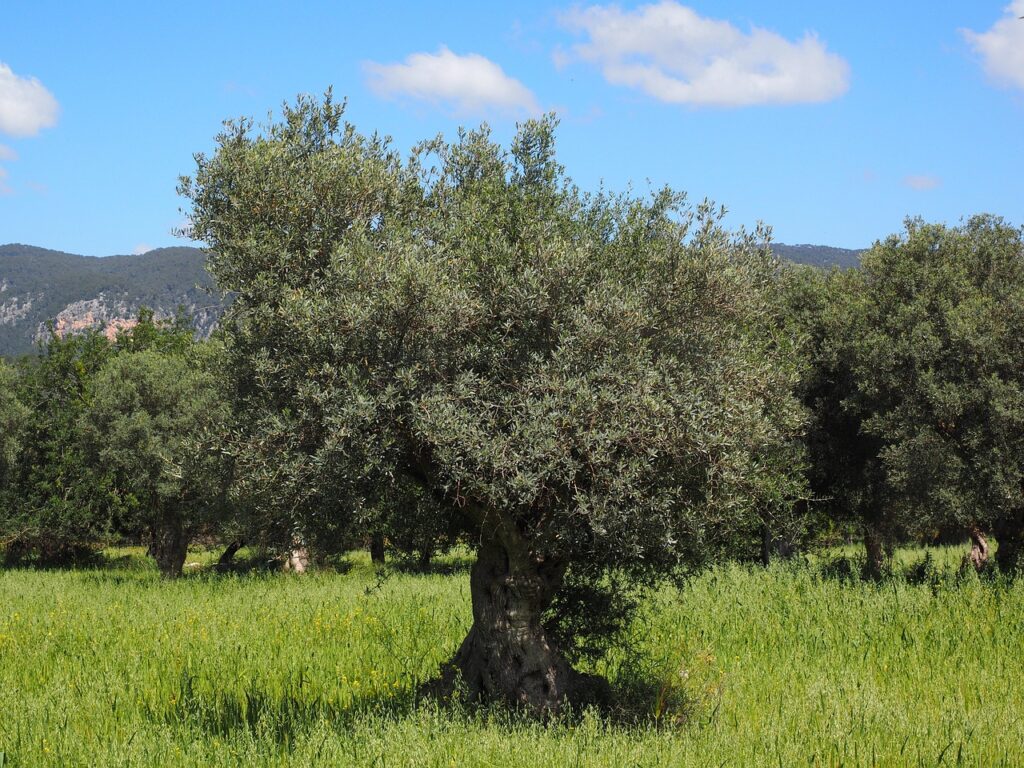
Olive Oil in Cretan Cuisine
Traditional Recipes
Cretan cuisine showcases the versatility and richness of olive oil. Traditional dishes, such as dakos, a Cretan staple with crusty bread, tomatoes, and feta cheese, are drizzled generously with olive oil. Other classic recipes include gemista (stuffed vegetables), dolmades (stuffed grape leaves), and moussaka (a layered eggplant dish). Olive oil is not only used for cooking but also as a finishing touch to enhance the flavors of the dishes.
Influence on Local Dishes
Olive oil is at the heart of Cretan cuisine and influences the flavors and characteristics of many local dishes. It adds richness, depth, and a distinctive fruity flavor to the food. The use of olive oil as a primary fat in cooking also contributes to the overall healthfulness of Cretan cuisine. The combination of fresh, locally sourced ingredients and high-quality olive oil creates a culinary experience unique to the island.
Olive Oil in Modern Gastronomy
Beyond traditional recipes, olive oil has found its way into modern gastronomy in Crete. Chefs and restaurants on the island are experimenting with creative ways to incorporate olive oil into innovative dishes. From olive oil-infused ice creams to olive oil cocktails, these culinary creations showcase the versatility of olive oil and its potential to transform even the most unconventional recipes into delicious and memorable culinary delights.
Visiting the Olive Groves of Crete
Guided Tours and Farm Visits
Visiting the olive groves of Crete is a fascinating way to immerse oneself in the island’s rich cultural heritage and agricultural traditions. Many olive oil producers offer guided tours and farm visits, where visitors can learn about the cultivation and harvesting process, witness traditional techniques in action, and taste the freshly pressed olive oil. These tours provide an educational and memorable experience for both olive oil enthusiasts and curious travelers.
Authentic Cultural Experiences
Exploring the olive groves of Crete goes beyond the mere appreciation of the landscape and agricultural practices. It offers an authentic cultural experience that allows visitors to connect with the island’s history, traditions, and people. Olive oil producers often share their knowledge and stories, providing insights into the significance of olive groves in Cretan culture and their role in shaping the local way of life.
Eco-Tourism and Sustainability
Visiting the olive groves of Crete also aligns with the principles of eco-tourism and sustainability. Many olive oil producers have embraced environmentally friendly practices, such as organic or biodynamic farming methods, to minimize their impact on the environment. By supporting these sustainable initiatives, visitors contribute to the preservation of the olive groves and the biodiversity of the island while enjoying an authentic and responsible travel experience.
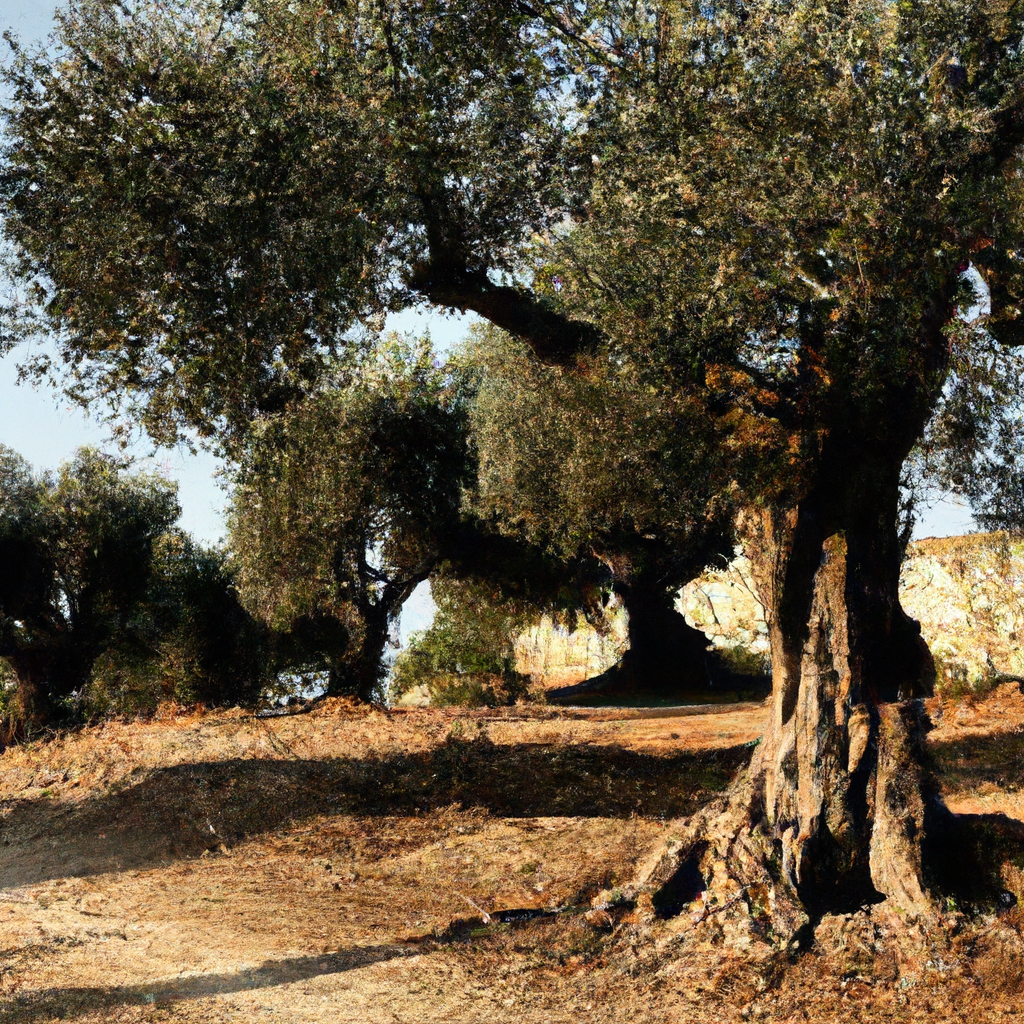
Exploring the Ancient Olive Trees of Crete
Locations and Heritage Sites
Crete is home to ancient olive trees that have stood the test of time, witnessing centuries of history unfold. Some of the most notable locations to explore these majestic trees include the archaeological site of Knossos, the ancient city of Eleftherna, and the Amari Valley. These heritage sites offer visitors a glimpse into the past and showcase the enduring significance of olive groves in Cretan history and culture.
Archaeological Discoveries
Archaeological excavations in Crete have unearthed numerous artifacts and evidence of the importance of olives and olive oil in ancient times. These discoveries include clay olive oil amphorae, olive presses, and remnants of olive trees preserved in volcanic ash. These archaeological findings provide valuable insights into the techniques and practices of olive cultivation in ancient Crete.
Preservation Efforts
Preserving the ancient olive trees of Crete is of utmost importance to the local communities and authorities. Efforts are underway to protect these monumental trees and ensure their survival for future generations. Measures such as tree maintenance, controlled access to the groves, and educational programs promote awareness and appreciation for the cultural and historical significance of these ancient living treasures.
Olive Oil and Local Crafts
Use in Soap and Cosmetics
Olive oil has long been used for its beneficial properties in soap and cosmetics. Cretan artisans have perfected the art of soap-making using olive oil as a base ingredient. These natural olive oil soaps are known for their moisturizing properties and gentle cleansing effects on the skin. The locals also create a range of cosmetics, including creams, lotions, and herbal remedies, utilizing the nourishing qualities of olive oil.
Olive Wood Artisans
The olive tree not only provides precious oil but also valuable timber. Olive wood is highly regarded for its durability, rich color, and beautiful grain patterns. Cretan artisans skillfully carve olive wood into exquisite sculptures, utensils, and decorative items. From handcrafted bowls and cutting boards to intricate statues and ornaments, olive wood products are a testament to the island’s craftsmanship and the sustainability of utilizing every part of the sacred olive tree.
Traditional Workshops
Visiting traditional workshops in Crete offers a unique opportunity to witness the intricate process of olive wood carving and soap-making. These workshops not only showcase the craftsmanship and artistic skills of the artisans but also provide visitors with a deeper understanding of the cultural significance of olive oil and its connection to local crafts. Purchasing these handcrafted souvenirs supports the local economy and ensures the continuation of these traditional arts.
In conclusion, the olive groves of Crete are not only a stunning natural landscape but also a window into the island’s rich cultural heritage and agricultural traditions. From ancient origins to modern gastronomy, the olive tree and its products have played a vital role in the lives of Cretans for millennia. Visiting the olive groves, exploring the ancient trees, and experiencing the unique flavors and health benefits of Cretan olive oil provide a comprehensive cultural and sensory journey into the heart of Greek island culture.
